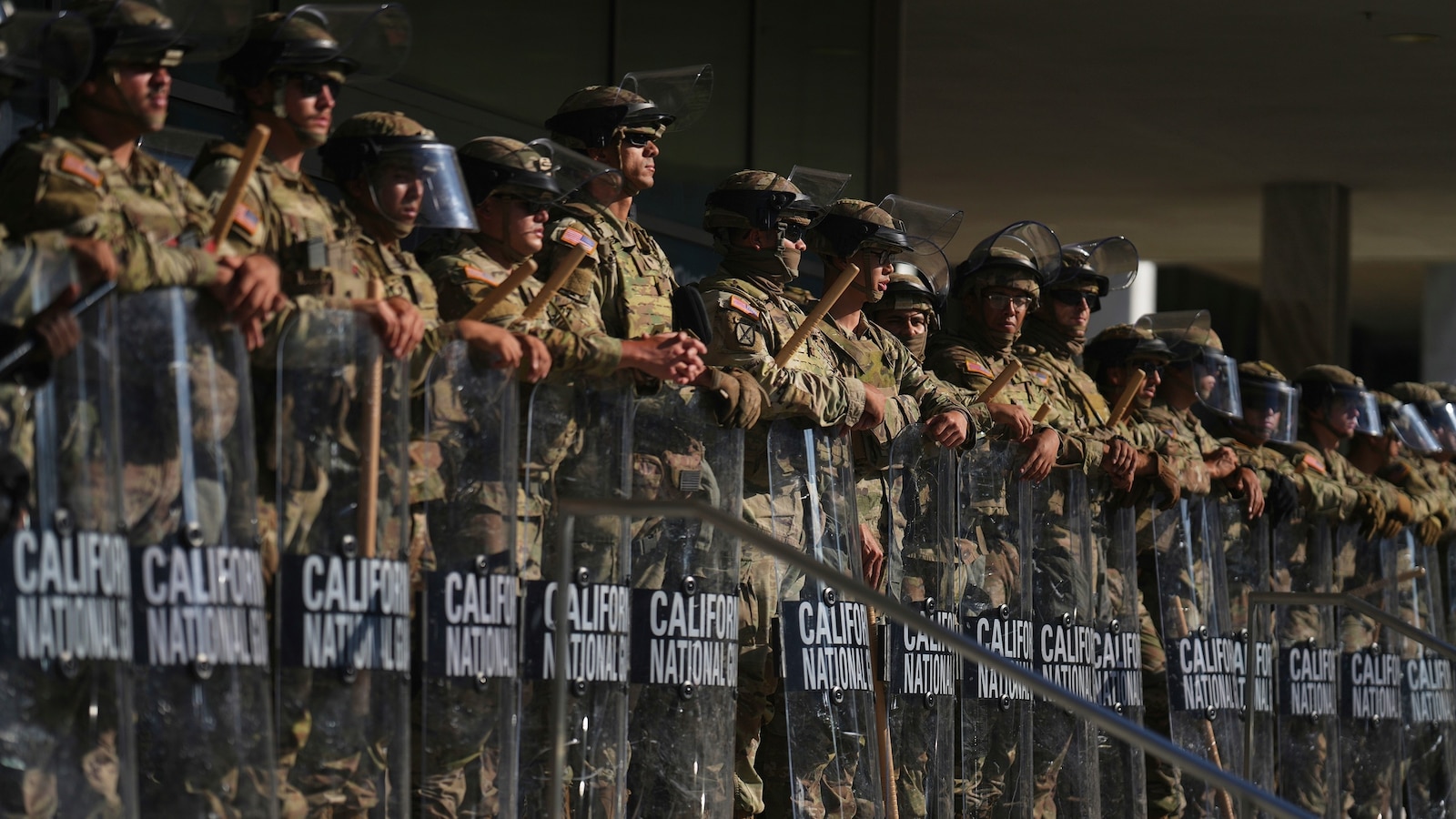A federal appeals court has intervened to delay a lower court’s order that would have prevented President Donald Trump from deploying the California National Guard. This action took place on Thursday, with a three-judge panel from the Ninth Circuit Court of Appeals issuing an administrative stay and scheduling a hearing for June 17.
The judges included two appointees of Trump and one appointed by former President Joe Biden. The intervention followed a ruling from a California district judge earlier that day, who had issued a temporary restraining order aimed at halting Trump’s deployment of National Guard troops amidst protests against immigration raids in Los Angeles. The judge ordered the return of the Guard’s command to Governor Gavin Newsom.
Lawyers representing the Trump administration argued that the judge’s decision was an “unprecedented” violation of the President’s authority as Commander in Chief. They filed an immediate appeal, and prior to the Ninth Circuit’s stay, the restraining order was set to take effect at noon on Friday.
In granting the temporary restraining order, U.S. District Judge Charles Breyer stated, “At this early stage of the proceedings, the Court must determine whether the President followed the congressionally mandated procedure for his actions. He did not. His actions were illegal—both exceeding the scope of his statutory authority and violating the Tenth Amendment to the United States Constitution. He must therefore return control of the California National Guard to the Governor of the State of California forthwith.”
Following the ruling, Newsom expressed relief, stating he would reclaim the National Guard for its previous roles. “The National Guard will go back to border security, working on counter drug enforcement and fentanyl enforcement, which they were taken off by Donald Trump. The National Guard will go back to working on what we refer to as the rattlesnake teams, doing vegetation and forest management, which Donald Trump took them off in preparation for wildfire season. The National Guard men and women will go back to their day jobs, which include law enforcement,” Newsom said during a press conference.
This legal conflict escalated after Trump ordered the deployment of over 2,000 National Guard troops to Los Angeles, a move which Newsom and other local officials claimed was unnecessary and escalated tensions during the protests. Newsom and Attorney General Rob Bonta had filed for the emergency restraining order, denouncing what they described as the Trump administration’s “unlawful militarization.”
Judge Breyer highlighted the constitutional concerns associated with militarizing civilian cities, particularly noting how the situation in Los Angeles did not meet the legal standard required for federal intervention due to what he outlined as “rebellion.” Breyer emphasized the First Amendment rights of protesters and condemned the idea that their actions warranted an armed federal response.
The legal disagreement also raises questions about the legality of the military’s involvement in immigration enforcement. The judge has yet to address allegations that such activities might violate the 1878 Posse Comitatus Act, which restricts military participation in domestic law enforcement.
During a 70-minute court hearing, Breyer focused on whether Trump adhered to the procedures outlined in Title 10 of the U.S. Code related to military mobilization. While federal lawyers contended that the President complied, state attorneys argued against the legality of federalizing the National Guard without sufficient cause.
Offering a contrasting perspective, Bonta argued, “To put it bluntly, there is no invasion or rebellion in Los Angeles; there is civil unrest that is no different from episodes that regularly occur in communities throughout the country, and that is capable of being contained by state and local authorities working together.”
In responding to the initial restraining order, the Department of Justice lawyers warned that barring the military from operating could infringe upon the President’s discretion in matters of national security. Trump’s administration remains firm in its assertions that federal troops were necessary to maintain order amidst escalating unrest.
In a recent statement, Trump defended his military decisions, asserting, “All I want is safety. I just want a safe area. Los Angeles was under siege until we got there. The police were unable to handle it.” He also warned that failure to assert control would lead to unrest spreading nationwide.
The ongoing situation has drawn attention, not only for its legal implications but for the broader implications on federal-state relations and civil liberties.

